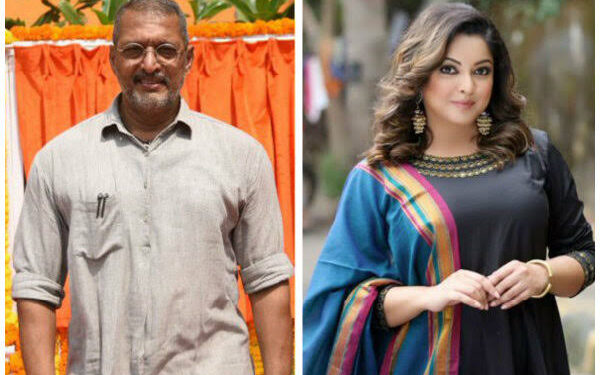Special Correspondent
Mumbai: Veteran actor Nana Patekar has been granted legal relief in a high-profile #MeToo case after a Mumbai court dismissed the sexual harassment complaint filed against him by actress Tanushree Dutta. The Metropolitan Magistrate Court in Mumbai ruled on Thursday that there was insufficient evidence to proceed with the case, closing a legal battle that spanned nearly five years and became a flashpoint in India’s #MeToo movement.
The controversy dates back to 2008, when Tanushree Dutta accused Patekar of inappropriate behavior on the sets of the film Horn Ok Pleassss. Dutta alleged that Patekar, then her co-star, harassed her during the filming of a dance sequence, claiming he insisted on adding intimate moves without her consent. She further accused the film’s crew and director of siding with Patekar and intimidating her when she resisted. The incident led Dutta to walk off the set and eventually step back from Bollywood.
In 2018, Dutta reignited the allegations amid the global #MeToo movement, sharing her story publicly. Her accusations against Patekar became a catalyst for India’s own #MeToo wave, prompting other women in the entertainment industry, media, and corporate sectors to speak out against harassment.
Dutta filed a formal police complaint in 2018, leading to an investigation by the Mumbai Police. However, the case faced delays and procedural hurdles, with Patekar consistently denying the allegations and calling them a “publicity stunt.”
In its ruling, the magistrate court noted that the evidence presented—including witness testimonies and documentation—failed to establish a prima facie case against Patekar. The court emphasized inconsistencies in witness accounts and a lack of corroborative evidence to support Dutta’s claims. Legal experts suggest the dismissal highlights the challenges of proving historical allegations, particularly in cases reliant on testimonial evidence from decades-old incidents.
The 72-year-old actor, known for films like Ab Tak Chhappan and Welcome, welcomed the verdict, stating, “Truth has prevailed. I always had faith in the judiciary.” His legal team criticized the allegations as “baseless” and politically motivated.
Dutta, who currently resides in the U.S., has not yet publicly commented on the dismissal. In past interviews, she expressed frustration over systemic biases in the legal process and societal victim-blaming. Supporters of Dutta argue that the ruling underscores systemic barriers faced by survivors in seeking justice.
Women’s rights advocates acknowledge the verdict as a setback but stress that Dutta’s courage inspired a cultural shift in India. “This case wasn’t just about legal victory but about breaking the silence. Many survivors found their voice because of Tanushree,” said lawyer and activist Flavia Agnes.
The case sparked debates about accountability in Bollywood, where power dynamics often silence victims. While some industry figures privately supported Dutta, public endorsements were scarce, reflecting the industry’s reluctance to confront harassment allegations.
Similar high-profile cases in India, such as those against journalist Priya Ramani (who was acquitted in 2021 in a defamation case filed by ex-minister M.J. Akbar) and filmmaker Anurag Kashyap (accused of misconduct, which he denies), have also faced complex legal battles, underscoring the fraught path to justice for survivors.
Legal experts indicate Dutta could appeal the decision in a higher court. However, the burden of proof remains a significant hurdle. Meanwhile, the ruling reinforces the need for stronger mechanisms to address workplace harassment and faster judicial processes for survivors.
The verdict closes a chapter in one of India’s most contentious #MeToo cases, but the movement’s legacy—of empowering survivors to speak truth to power—continues to resonate.



















